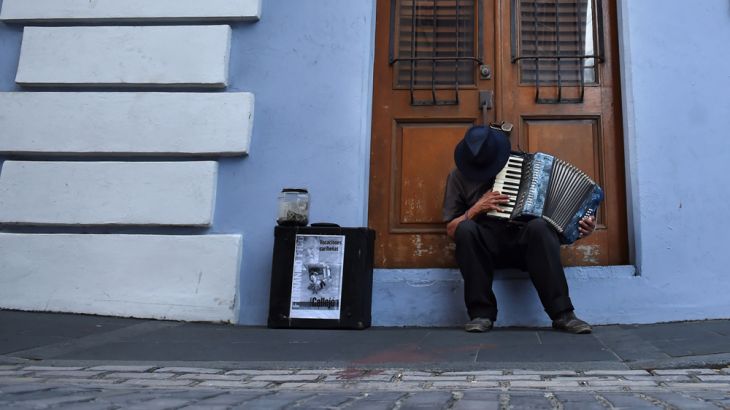
The Puerto Rico Gamble
Fault Lines investigates the island’s crippling debt crisis and Wall Street’s influence on the economy.
They should not cut funding that goes to children. That is not where you cut funding because peoples' education determines who these people are, determines the success of people. This has hurt us.
In June, Puerto Rican Governor Alejandro Garcia Padilla announced that the island had accumulated $72bn in debts and would not be able to pay them back anytime soon.
The announcement touched off a new struggle over who should pay for the debt crisis.
Keep reading
list of 4 itemsAs US inflation ticks back up, it could impact the presidential election
Will the US unemployment rate continue at historic lows?
The UK’s new minimum wage ‘badly needed’ but many calling for more
The island has not yet recovered from the effects of the global financial collapse, and poverty, unemployment and inequality rates far eclipse those in any US state.
Simultaneously, Wall Street investors have taken a new interest in the island, buying up debt and taking advantage of favourable tax conditions.
“In the past two years the government has shut down 135 schools,” Mercedes Martinez, the president of the Teachers Federation, says.
“It’s definitely a response from the government and an attack towards the working class… all the schools that have been shot down have been in areas of impoverished communities.”
As Puerto Rico enters a new age of austerity, who is looking out for the interests of the poor?
As protests erupt over the island’s crippling debt crisis, Fault Lines travels to San Juan to investigate the fate of the island’s public education system – which the government targeted for massive cuts – and to examine whether an influx of investment dollars really has the potential to address an island mired in debt.